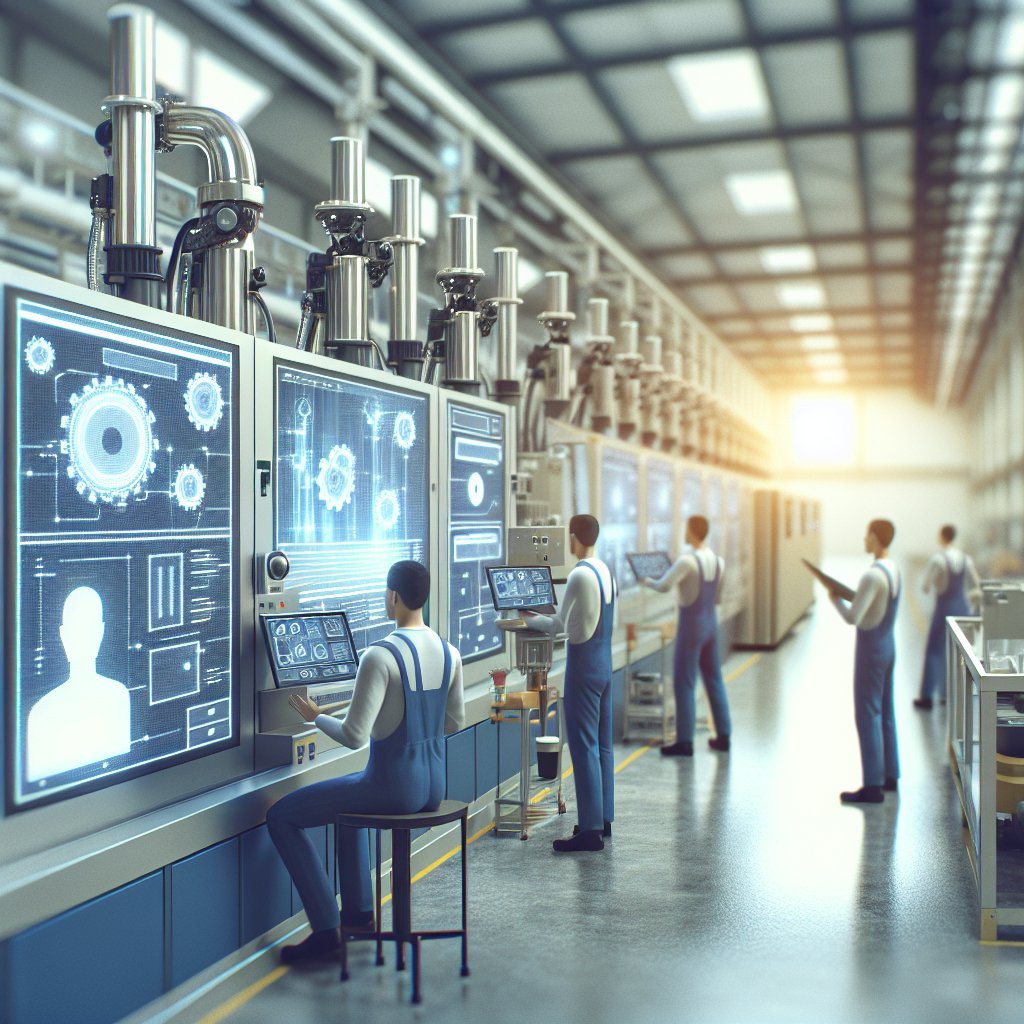
Machine learning has become a pivotal component in the realm of industrial process control, revolutionizing the way industries operate and optimize their processes. By leveraging advanced algorithms and data analytics, machine learning enables industries to enhance efficiency, reduce costs, and improve product quality. This article delves into the transformative role of machine learning in industrial process control, exploring its applications, benefits, and future potential.
Understanding Machine Learning in Industrial Contexts
Machine learning, a subset of artificial intelligence, involves the development of algorithms that allow computers to learn from and make predictions or decisions based on data. In industrial contexts, machine learning is applied to process control systems to automate and optimize operations. These systems can analyze vast amounts of data generated by sensors and other monitoring devices, identifying patterns and anomalies that may not be apparent to human operators.
One of the primary applications of machine learning in industrial process control is predictive maintenance. By analyzing historical data and identifying patterns, machine learning models can predict when equipment is likely to fail, allowing for timely maintenance and reducing downtime. This not only enhances operational efficiency but also extends the lifespan of machinery.
Another significant application is in quality control. Machine learning algorithms can detect defects in products by analyzing images or sensor data, ensuring that only products meeting quality standards reach the market. This reduces waste and improves customer satisfaction.
Benefits of Machine Learning in Process Control
The integration of machine learning into industrial process control offers numerous benefits. One of the most significant advantages is the ability to process and analyze large volumes of data in real-time. This capability allows for more accurate and timely decision-making, leading to improved process efficiency and reduced operational costs.
Machine learning also enhances the adaptability of process control systems. Traditional control systems rely on predefined rules and models, which may not account for all possible scenarios. In contrast, machine learning models can adapt to changing conditions and learn from new data, making them more robust and flexible.
Furthermore, machine learning can lead to significant energy savings. By optimizing processes and reducing waste, industries can lower their energy consumption, contributing to sustainability efforts and reducing their carbon footprint.
Challenges and Considerations
Despite its numerous benefits, the implementation of machine learning in industrial process control is not without challenges. One of the primary concerns is data quality. Machine learning models rely on high-quality data to make accurate predictions and decisions. Incomplete or inaccurate data can lead to erroneous outcomes, potentially disrupting operations.
Another challenge is the integration of machine learning systems with existing infrastructure. Many industries operate with legacy systems that may not be compatible with modern machine learning technologies. This necessitates significant investment in upgrading infrastructure, which can be a barrier for some organizations.
Additionally, there is a need for skilled personnel who can develop, implement, and maintain machine learning models. The shortage of such expertise can hinder the adoption of machine learning in industrial settings.
The Future of Machine Learning in Industrial Process Control
The future of machine learning in industrial process control is promising, with ongoing advancements in technology and increasing adoption across various sectors. As machine learning algorithms become more sophisticated, their ability to handle complex processes and make accurate predictions will continue to improve.
One area of potential growth is the integration of machine learning with the Internet of Things (IoT). By connecting devices and systems, IoT can provide a wealth of data for machine learning models to analyze, further enhancing process control capabilities.
Moreover, the development of explainable AI (XAI) is expected to address some of the challenges associated with machine learning, such as the “black box” nature of some models. XAI aims to make machine learning models more transparent and understandable, facilitating their adoption in industries where accountability and compliance are critical.
In conclusion, machine learning is set to play an increasingly vital role in industrial process control, offering significant benefits in terms of efficiency, cost reduction, and quality improvement. While challenges remain, ongoing advancements in technology and expertise are likely to overcome these hurdles, paving the way for a more automated and optimized industrial future.

